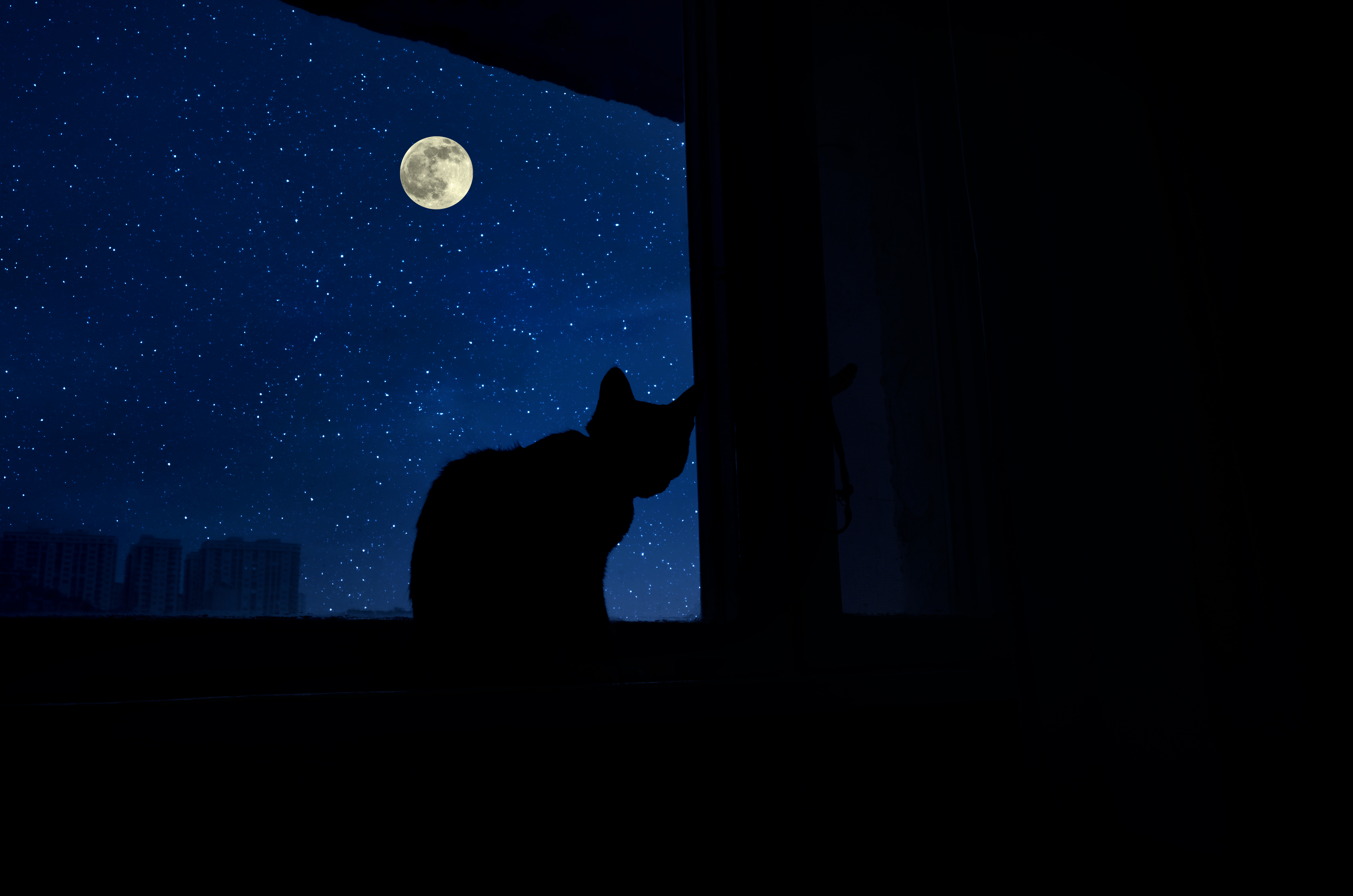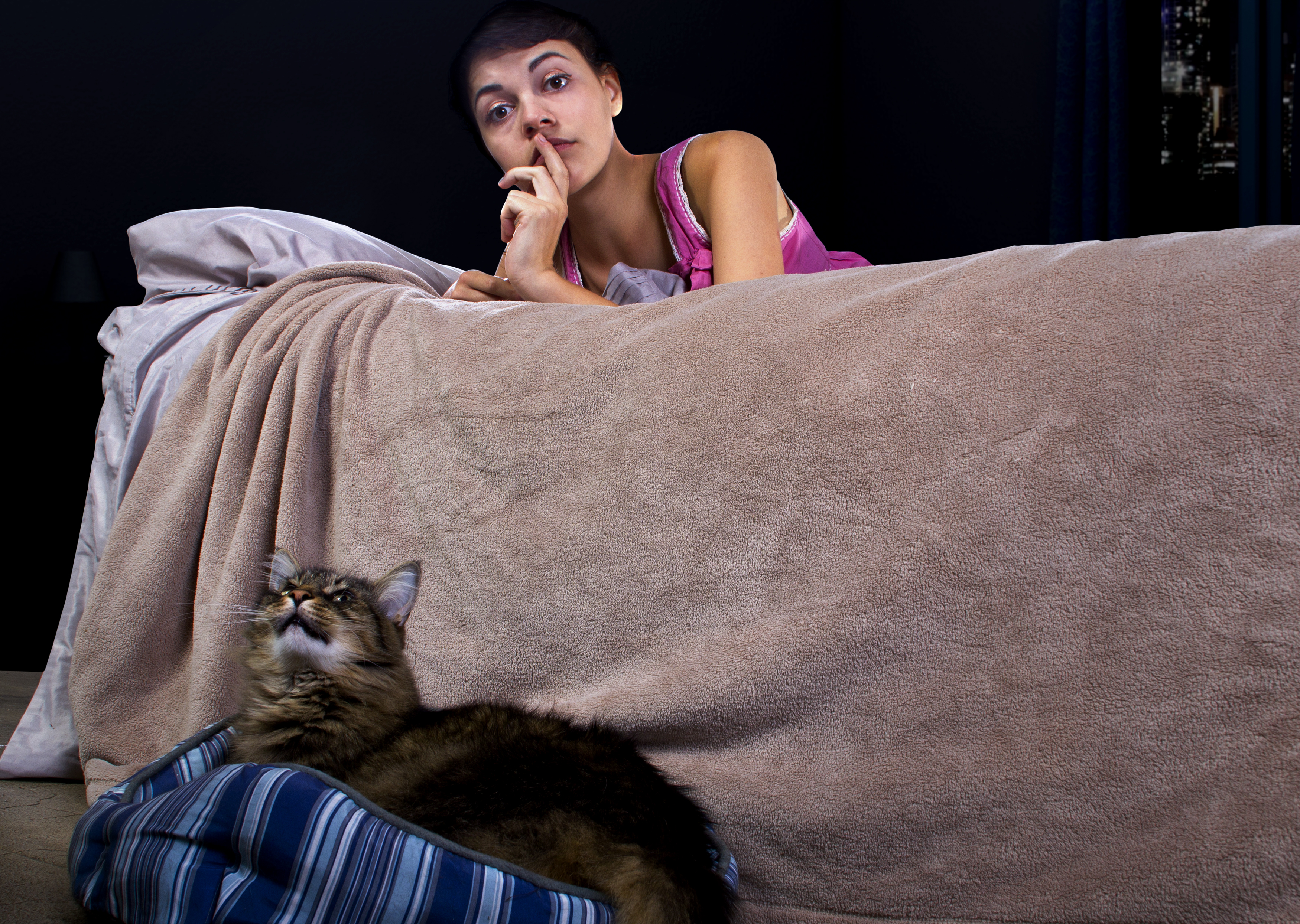
How to Deal with a Cat That's Up All Night
As most cat lovers know, cats are largely awake at night, roaming through the house in the dark. Although many people believe they are nocturnal, cats are actually crepuscular, which means they are most active at dawn and at dusk. Unfortunately, this means that you and your cat’s sleep schedules are unlikely to be the same.
It can be tough to get a good night’s sleep when your cat is leaping across your bed, making noise as it plays or meowing for food or attention. Fortunately, there are ways to adjust your cat’s sleeping schedule, and get some uninterrupted sleep while your cat has its midnight fun.
Why are cats up at night anyway?

If your cat appears to be up all night, you shouldn’t worry that something is wrong. Because cats are naturally crepuscular, it’s normal for them to be up just after the sun sets and just before the sun rises.
In nature, cats tend to hunt their prey at night, when it is most active. House cats can develop a slightly different sleep schedule due to not hunting prey all night long, but they still tend to be up more at nighttime. This doesn’t mean your cat will be up all night, though. Many cats get up for short bursts of playtime during the night and take catnaps in between.
Unfortunately, a cognitive problem might also be behind your cat’s all-night restlessness. Old cats can experience cognitive dysfunction and disorientation that leads them to meow and appear distressed, particularly at night. If this is the case for your cat, you may require veterinary assistance to keep it calm throughout the night.
Getting shuteye around a restless cat
If your cat is disturbing your sleep at night, there are a few things you can do to help it play more peacefully and enjoy its natural sleep schedule while you get a better night’s rest.
- Find ways to entertain your cat at night: Cats that are up at night might pounce on your hands and feet as if they are toys. To keep your cat occupied at night, consider getting your cat new toys, particularly automated ones like electronic laser toys or battery-operated ones that allow it to play by itself.
- Consider a second cat: If you’ve been contemplating adding another cat to your family, you may be in for a treat. A second cat gives both cats a companion to play with! This can help during the day while you’re at work, as well as at night, so the cats can play with each other instead of wanting attention from you.
- Adjust feeding schedules: Another problem cat owners encounter is not that their cats are up all night, but that they are up way too early in the morning. The reason for this is often because they are hungry. To avoid this problem, try feeding your cat later in the evening so it is satiated until you are ready to get up and feed it again in the morning.
- Keep your bedroom door closed: Sometimes, cats are just too energetic to be allowed in your bedroom at night, regardless of how many toys it has. If that’s the case, you may need to prevent your cat from accessing your bedroom at all. Keep the door closed and set up deterrents like double sided tape if you’re worried about your cat scratching at the door.
- Avoid giving your cat attention at night: No matter what you do, don’t give your cat attention when it disrupts your sleep by pouncing or scratching at doors. Doing so may reinforce its inappropriate behaviors by connecting bad behavior with attention.

Adjusting your cat’s sleep schedule
If trying to sleep while your cat stays awake at night doesn’t work, you might have more success with trying to alter its sleep schedule altogether. Try these tips:
- Play with your cat a lot during the day: Your cat probably sleeps while you’re at work, meaning it has a lot of energy to burn off when it’s time to go to bed. To alleviate this, spend time playing right when you return home from work and during the day, if possible. Additionally, provide stimulating activities for your cat to enjoy during the day, such as automated toys and cat trees, to help it burn off more energy while it’s alone.
- Avoid playing with your cat right before bed: Playing with your cat immediately before bed might get it excited and in a hyper mood. Instead, try to feed your cat a big meal before bed to help it feel full and sleepy. Then, provide it a cozy place to lay and fall asleep, whether that’s a blanket on your lap, a cat bed or a soft spot at the foot of your bed.
By adjusting your cat’s playtime and feeding schedules and ensuring it burns off lots of energy throughout the day, you should have a much easier time getting a good night’s sleep!


